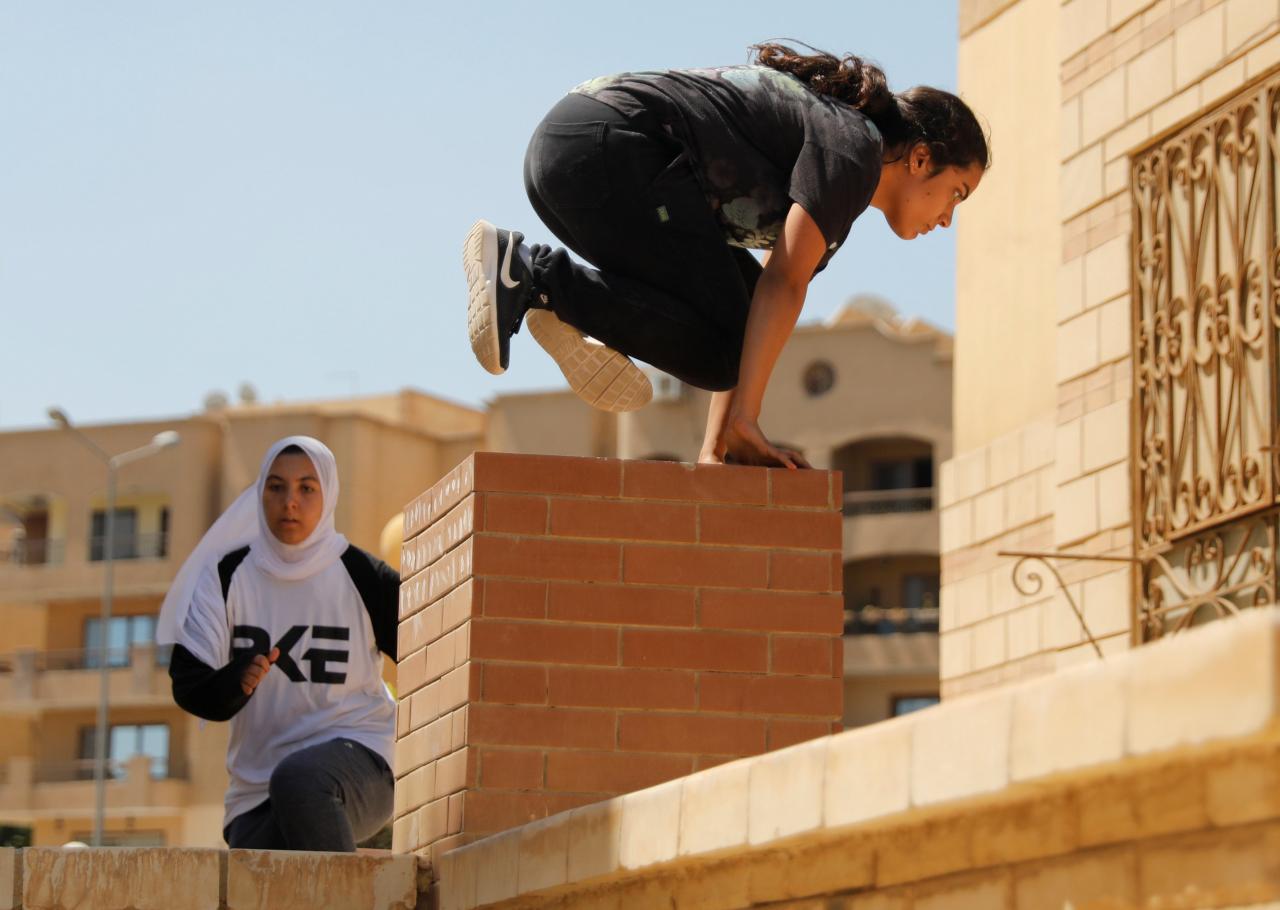
A group of Egyptian women gather at an abandoned park in a Cairo suburb once a week, climbing walls and jumping around in the strenuous physical discipline known as Parkour, while also challenging the country’s conservative social norms.
Founded in France in the 1980s as the Art du Deplacement and later taking its name from the French word ‘parcours’ (course or route), Parkour involves running, climbing and jumping acrobatically around buildings and over terrain.
Ten women took part in last Friday’s training, which focused on building upper body strength and different methods of dealing with surroundings.
Curious crowds, accustomed to women taking a low profile in Egypt, often congregate to watch the training, sometimes taking pictures and filming. But the women keep up the training unhindered, insisting that no sport is exclusive for men.
“It is natural that people did not accept it because they were not used to it,” said Zayneb Helal, one of the players.
“They did not accept the idea that girls could play sports, let alone on the street,” she added.
It is uncommon for women to play such sports on the streets in Egypt. A 2017 Thomson Reuters Foundation survey of experts on how women fared in mega cities rated Cairo as the world’s most dangerous megacity for women, while London came out as best.
Guided by coach Mohamed Omran, women train hard on climbing obstacles, landing correctly after jumps and seeing opportunities in buildings around them.
“Women are now training and more women are starting to come,” Omran said. “As the sport spreads the acceptance of women training increases and it is not unusual for women to have a team and train,” he added.
Parkour is played by men in Egypt but the sport is neglected and has no regulatory body. Parkour Egypt, a group that comprises men and women, has grown exponentially after starting off with a handful of players.
Last year Britain became the first country officially to recognize Parkour as a sport.
“It needs more time to evolve and the sport needs to spread more so that people would learn about it,” Helal said.




